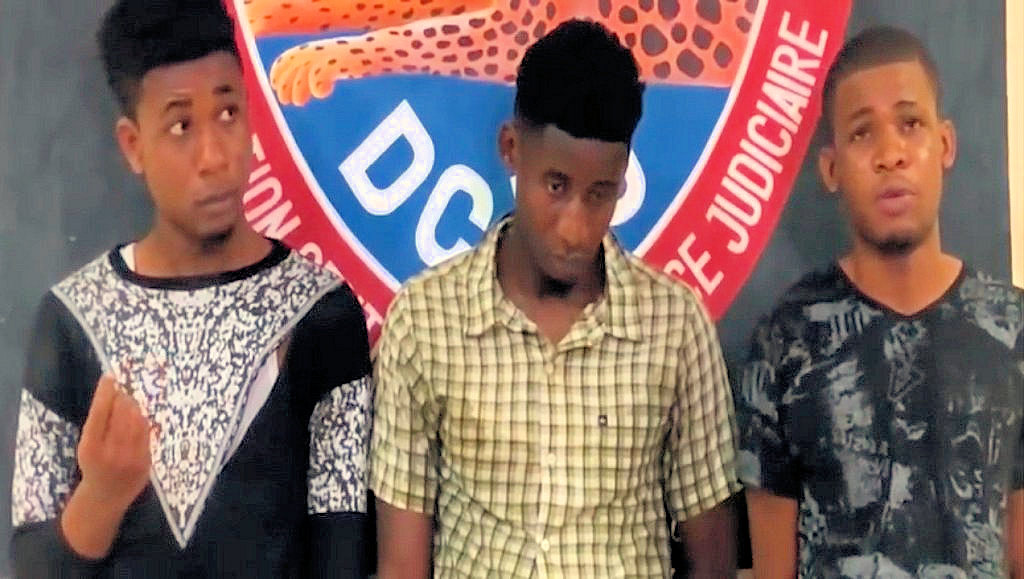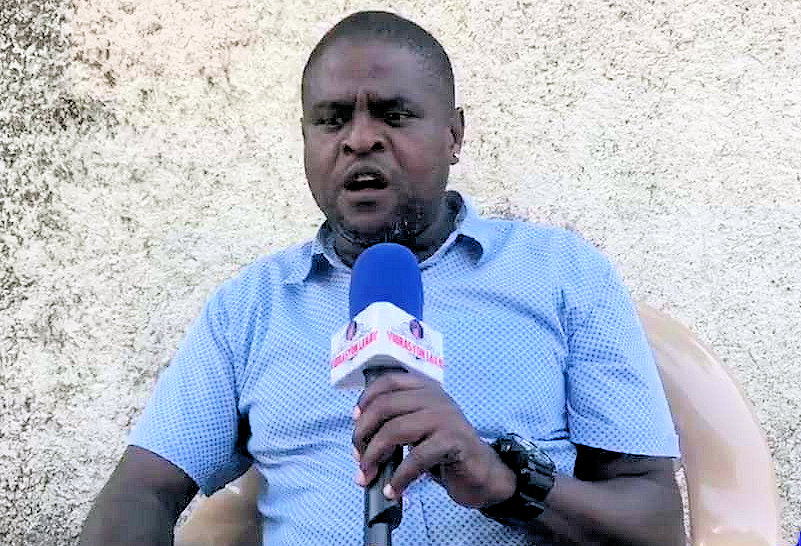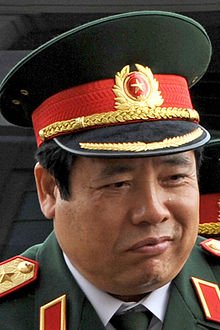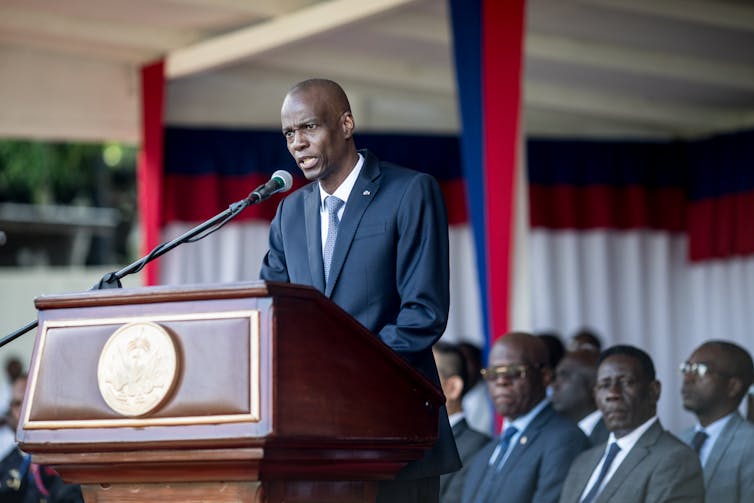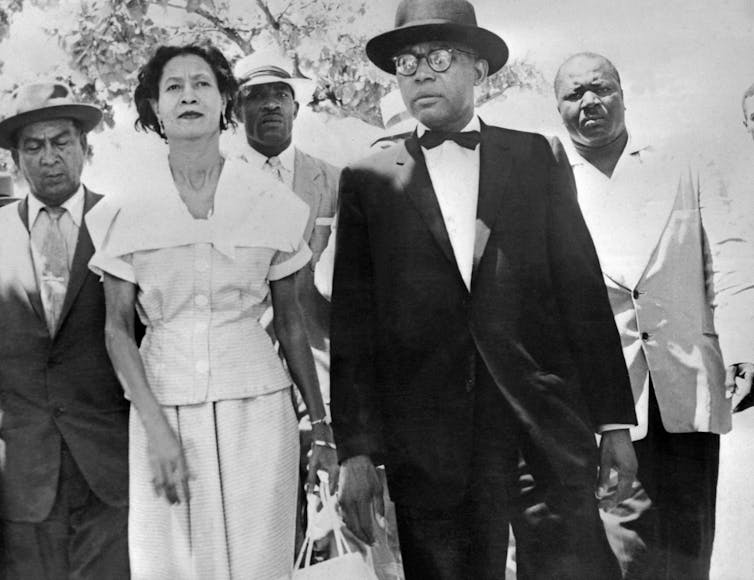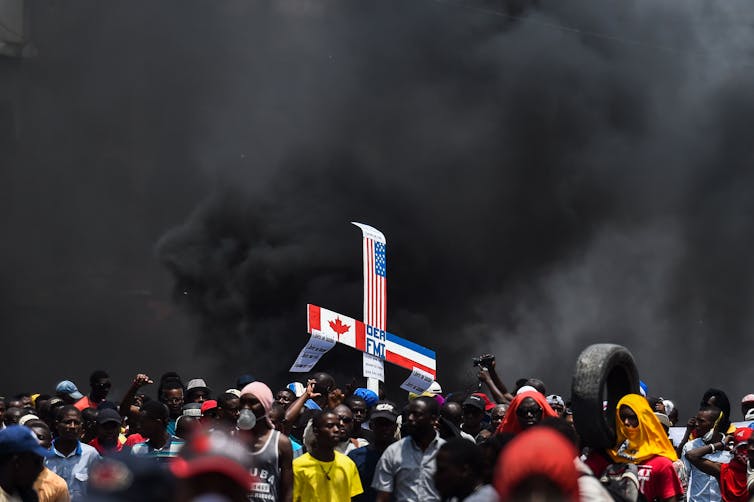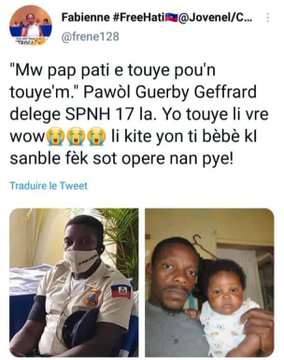loyola llothta
☭☭☭
Understanding Gangs, Kidnapping, and Class Struggle in Haiti Part 1
The first of two parts
March 17, 2021
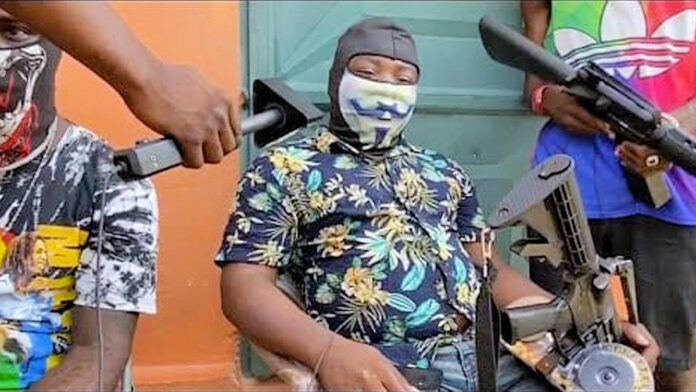
“Izo,” the young leader of the gang known as the Five Seconds Base in Village de Dieu, an impoverished Port-au-Prince neighborhood.
https://haitiliberte.com/understanding-gangs-kidnapping-and-class-struggle-in-haiti/
The first of two parts
March 17, 2021

“Izo,” the young leader of the gang known as the Five Seconds Base in Village de Dieu, an impoverished Port-au-Prince neighborhood.
It was the kind of foolish police operation born of hubris and too many Hollywood movies.
On Mar. 12, 2021, a dozen heavily armed policemen from the most elite tactical unit of the Haitian National Police (PNH) – the Special Weapons and Tactics (SWAT) team – drove into Village de Dieu, one of Port-au-Prince’s most wretched shantytowns, in two armored vehicles.
The slum is home to one of Haiti’s most notorious gangs, the Five Seconds Base, led by “Izo,” in his early 20s, reputed to be the #1 gang leader and kidnapper in Haiti. Three days earlier, his gang members strafed with automatic weapons the headquarters of Electricité d’Haïti (EDH) on Harry Truman Boulevard in the nearby Bicentennaire district, killing a motorcyclist and wounding an EDH employee.
As the SWAT team in their armored vehicles crept into the shantytown, unsure of the rarely police-penetrated area, residents pointed and called out, apparently directing them to the gang’s headquarters. Instead, they led the vehicles into a giant hole, where they were ambushed with a hail of gunfire. Four of the policemen were killed, three of their bloody corpses dragged through the streets. Another eight SWAT team members were wounded, two of them gravely. The Five Seconds Base captured both armored vehicles, burning one of them. They also made off with the SWAT team’s automatic weapons, body armor, radios, and other equipment.

In October 2020, high-school student Evelyne Sincère was kidnapped and killed by her boyfriend and two accomplices.
“The [Haitian National] Police wants to kill us,” cried one desperate policeman in a piteous phone call as the raid unraveled. “We’ve been calling the police for back-up for two hours, but they’ve never sent it… Right now, it’s every man for himself… They’re trying to burn six of our guys in one of the vehicles… I will never remain on this police force. They’ve got five of us surrounded. We can’t leave where we are. We don’t know what to do. My phone is about to discharge… The bandits are massing to kill us. I have a wife and children. If they don’t send back-up soon, I’m going to shoot myself because I don’t want the bandits to finish with me their way.”
The shocking accounts, footage, and images of the raid-gone-wrong went viral on Haitian social media, stunning Haitians worldwide.
Disappearing State Authority
This wrenching episode is not the result of racist and imperialist rationales that Haitians are savage, explosive, uncivilized, and innately unable to govern themselves, as openly expressed in books by several U.S. Marine veterans of Haiti’s 1915-1934 military occupation, like Capt. John Houston Craige, who penned “Black Baghdad” (1933) and “Cannibal Cousins” (1934).
Rather it is the inevitable culmination of two centuries of embargos, sabotage, bullying, aggression, destabilization campaigns, coups d’état, military occupations, and theft of territory and treasure against a nation founded through history’s only successful slave revolution, capped off by U.S. State Department policy over the past four decades, which has systematically done an end-run around the Haitian state, more often working directly with NGOs.
THERE IS DIVISION OVER HOW TO MANAGE THE GROWING LAWLESSNESS AND ANARCHY
On Feb. 7, 2006, President René Préval announced at his second presidential inauguration that his primary goal would be to “reestablish the authority of the State,” which had been undermined by two U.S.-fomented coups d’état and subsequent foreign military occupations over the previous 15 years. But now, 15 years and two “electoral coups d’état” later, Haiti’s state authority is weaker than ever.
“Never in our country’s history have we been so close to what one might metaphorically call suicide,” said Haïti Liberté’s Mar. 10 editorial prophetically entitled “On the Brink of Chaos,” two days before the disastrous police raid. “The country is well and truly divided, and the divide between the rich and the poor keeps widening.”
https://haitiliberte.com/understanding-gangs-kidnapping-and-class-struggle-in-haiti/
Last edited:
